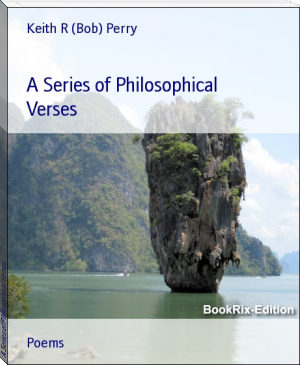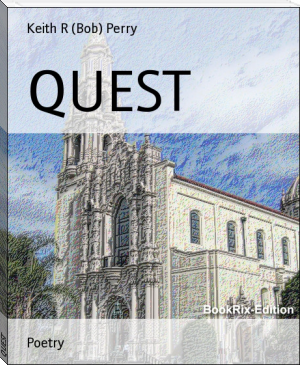The Ship of Fools, Volume 1-2 - Sebastian Brant (thriller books to read TXT) 📗

- Author: Sebastian Brant
- Performer: -
Book online «The Ship of Fools, Volume 1-2 - Sebastian Brant (thriller books to read TXT) 📗». Author Sebastian Brant
The book is extremely rare. There is a fine copy in the Bodleian
Library among Selden’s books, another in the British Museum, Grenville
Collection, and another in the Library of St. John’s College, Oxford.
The following are the more notable prices: Farmer, 1798, £2. 4s.;
Sotheby’s, 1821, £28; Dent, £30. 9s.; Bib. Anglo-Poetica, £105;
Perkins, 1873, £130.
The following amusing note on prices is taken from Renouard’s
“Catalogue d’un Amateur.” “Les premières éditions latines de ce
singulier livre, celles des traductions françoises, toutes également
remplies de figures en bois, ne déplaisent pas aux amateurs, mais
jamais ils ne les ont payées un haut prix. La traduction angloise faite
en 1509, sur le francois, et avec des figures en bois, plus mauvaises
encore que leurs modèles, se paye en Angleterre 25, 30 et mème 60
guinées; c’est là, si l’on veut, du zèle patriotique, de l’esprit
national.”
II.a. STULTIFERA NAUIS…. THE SHIP OF FOOLES….. With diuers other
workes…. very profitable and fruitfull for all men…. Cawood. 1570.
Folio.
A large cut of vessels filled with fools (the same as on p. 313, Vol.
II.) is inserted between the Latin and English titles. This edition
omits the ballad to the Virgin at the end. The English is in black
letter, and the Latin in Roman, in the same order as in the preceding
edition. On the recto of leaf 259: Thus endeth the Ship of Fooles,
translated … by Alexander Barclay Priest, at that time Chaplen in the
Colledge of S. Mary Otery in the Countie of Deuon. Anno Domini 1508. On
the back “Excusatio Iacobi Locher Philomusi,” in Sapphic verse. On the
next page five stanzas by Barclay “excusing the rudenes of his
Translation.” Lastly, an Index in Latin, and then in English. Then,
follow the “diuers other workes,” the Mirrour of good maners, and the
Egloges. Colophon: Imprinted at London in Paules Church-yarde by Iohn
Cawood Printer to the Queenes Maiestie. Cum Priuilegio ad imprimendum
solum.
The woodcuts, including the one on the title-page, number 117. They are
the same as those of Pynson’s edition, but show occasional traces of
the blocks having been chipped in the course of their preservation in a
printer’s office for 60 years or so. The borders only differ, being of
a uniform type, while those of the previous edition are woodcuts of
several patterns.
The numbering is a little irregular; the preliminary leaves (12) are
unnumbered. The folios are numbered in figures on the left hand page,
‘folio’ being prefixed to the first six, 16 is repeated for 17, 13
stands for 31, [in one of the Adv. Lib. copies the latter irregularity
is found, though not the former; in the other, 17 and 31 are numbered
correctly], 96 is repeated for 99, 188 for 191, 100 for 200, and 205
for 201. The last number is 259, and there are three extra leaves, thus
making 274 for the Ship. The supplementary works are not numbered. The
signatures are as follows: The Ship, ¶ six leaves; ¶¶ six leaves; A
to U u, in sixes; X x, four leaves; Mirrour of good manners, A—G, in
sixes; Egloges, A to D, in sixes; in all 680 pp.
This book was licensed to Cawood in 1567-8, and is said to be the only
book he had license for. It is now very rare.
Prices: Digby, 1680, 4s. 4d. Bernard, 1698, 1s. 10d. Gulston, 1783, £1,
16s. White Knights, £8, 12s. Roxburghe, £9, 19s. 6d. Fonthill, £13,
13s. Bib. Anglo-Poet, £12, 12s. Heber, £8, 12s. Sotheby’s, 1873, £48,
10s.
*
A complete bibliography of the various editions and versions of the
Ship of Fools will be found in Zarocke’s edition of the original, or in
Graesse’s Trésor de livres rares et précieux. A notice is subjoined of
the two editions of the English prose translation, and of the two other
publications bearing the title.
The abridged prose translation, by Henry Watson, from the French prose
version of Jehan Droyn, appeared from the press of De Worde in the same
year in which Barclay’s fuller poetical version was issued. In both
text and illustrations it is a much inferior production to the latter.
As the existence of the first edition has been, and still is, denied,
it being frequently confounded with Barclay’s book, we transcribe the
following description of the only known copy from Van Praet’s
“Catalogue des livres imprimés sur vélin de la Bibliotheque du Roi.”
The Shyppe of Fooles, translated out of frenche, by Henry Watson. London,
Wynkyn de Worde, 1509, petit in—4.
Edition en lettres de forme, sans chiffres ni réclames, avec
signatures, figures et initiales en bois; à longues lignes, au nombre
de 32 sur les pages entierès; cont. 169 f.; les 7 premiers renferment
1. le titre suivant, gravé audessus d’une figure qui représente le
navire des fous:
¶ The shyppe of fooles.
2. Le prologue du traducteur; 3. la préface; 4. la table des chapitres.
Au recto du dernier f. est cette souscription:
¶ Thus endeth the shyppe of fooles of this worde. Enprynted at London
in Flete strete by Wynk[=y] de worde prynter vnto the excellent
pryncesse Marguerete, Countesse of Rychemonde and Derbye, and grandame
vnto our moost naturall souereyne lorde kynge Henry [=y] viii. The yere
of our lorde. M.CCCCC. ix. ¶ The fyrste yere of the reygne of our
fouerayne lorde kynge Henry the viii. The. vi. daye of Julii. On
aperçoit au verso le monogramme et la marque de William Caxton, au bas
desquels on lit ces mots: Wynken de Worde.”
This beautiful copy upon vellum is the only example of this edition
known.
The grete Shyppe of Fooles of this worlde. W[=y]kyn de Worde. 1517. Quarto.
This is the second edition of Watson’s translation. Colophon: “Thus
endeth the shyppe of fooles of this worlde. Jmprynted at Londod in
flete strete by W[=y]kyn de Worde. ye yere of our lorde M.CCCCC. &
xvii.
¶ The nynthe yere of y^e reygne of our souerayne lorde kynge Henry y^e
VIII. The xx. daye of June.” It contains G G 6, fours and eights
alternately (the signatures ending on G G iij.), besides 6 leaves, with
the prologue, prolude and table, before signature A.
Extremely rare. Roxburghe, £64.
The Ship of Fools Fully Fraught and Richly Laden with Asses, Fools,
Jack-daws, Ninnihammers, Coxcombs, Slenderwits, Shallowbrains, Paper-Skuls,
Simpletons, Nickumpoops, Wiseakers, Dunces, and Blockheads, Declaring their
several Natures, Manners and Constitutions; the occasion why this Ship was
built, with the places of their intended Voyage, and a list of the Officers
that bear Command therein.
If for this Voyage any have a mind,
They with Jack Adams may acceptance find,
Who will strain hard ere they shall stay behind.
Licensed, Roger L’Estrange.
[A large woodcut of the Ship.]
London, Printed by J. W. for J. Clark, at the Bible and Harp in
West-Smithfield. n. d. [Circa 1650.] 4to. 4 leaves.
“This book, or rather tract, has nothing in common with Barclay’s Ship
of Fools, except the general idea. It is entirely in prose. My copy has
nothing to show to whom it formerly belonged.”—(Letter of H. Huth,
Esq.) The last sentence was elicited by the inquiry whether Mr Huth’s
copy were the one formerly belonging to Mr Heber.—See _Bibliotheca
Heberiana_, Part IV., No. 752.
Stultifera Navis … The modern Ship of fools. Lond. 1807, 80. Pp. xxiv.,
295.
A wretched production in verse, in imitation of Barclay’s Ship of
Fools, published anonymously by W. H. Ireland, the Shakesperian forger.
*
III. THE EGLOGES OF ALEXADER BARCLAY, PREST.—The first three, without
printer’s name or device. No date. Quarto. Black letter.
“Here begynneth the Egloges of Alexader Barclay, prest, wherof the
fyrst thre conteyneth the myseryes of courters and courtes of all
prynces in generall, the matter wherof was translated into Englyshe by
the sayd Alexander in fourme of Dialogues, out of a boke named in latyn
Miserie Curialiu, compyled by Eneas Siluius, Poete and oratour, whiche
after was Pope of Rome, & named Pius.” This title is over a cut of two
shepherds, Coridon and Cornix, the interlocutors in these three
eclogues. On the back is a cut of David and Bathsheba. At the end of
the third egloge: “Thus endyth the thyrde and last egloge of the mysery
of court and courters, composed by Alexander Barclay, preste, in his
youthe.” A cut of the two shepherds and a courtier fills up the page.
Without date, printer’s name, or device. Contains P 6, in fours, the
last leaf blank.
III.a. THE FOURTHE EGLOGE OF ALEXANDER BARCLAY.—Pynson. No date. Quarto.
Black letter.
It is entitled, “The Boke of Codrus and Mynaclus,” over the cut of a
priest, with a shaven crown, writing at a plutus. It concludes with
“The discrypcion of the towre of Vertue & Honour, into whiche the noble
Hawarde contended to entre, by worthy acts of chiualry,” related by
Menalcas, in stanzas of eight verses. At the end, “Thus endeth the
fourthe Eglogge of Alexandre Barcley, coteyning the maner of the riche
men anenst poets and other clerkes. Emprinted by Richarde Pynson priter
to the kynges noble grace.” On the last leaf is his device, No. V.
Contains 22 leaves, with cuts.
III.b. THE FYFTE EGLOGE OF ALEXANDER BARCLAY. —Wynkyn de Worde. No date.
Quarto. Black letter.
“The fyfte Eglog of Alexandre Barclay of the Cytezen and vplondyshman.”
This title is over a large woodcut of a priest, sitting in his study.
Beneath, “Here after foloweth the Prologe.” On the verso of A ii. are
two cuts of two shepherds, whole lengths, with this head-title,
“Interlocutoures be Amyntas and Faustus.” There are no other cuts.
Colophon: “Here endeth the v. Eglog of Alexandre Barclay of the Cytezyn
and vplondysshman. Imprynted at London in flete strete, at the sygne of
[the] Sonne, by Wynkyn de worde.” Beneath, device No. v. Contains A 8,
B 4, C 6; 18 leaves. There is a copy in the British Museum.
With the first four Eclogues as above, Woodhouse, 1803, (Herbert’s
copy), £25.; resold, Dent, 1827, £36.; resold, Heber, 1834, £24. 10s.
At Heber’s sale this unique set, containing the only known copy of the
first edition of the first four Eclogues, was bought by Thorpe; further
I have not been able to trace it.
III.c. THE EGLOGES.—John Herforde. No date. Quarto.
“Here begynneth the Egloges of Alex. Barclay, Priest, whereof the first
three conteineth the Miseries of Courters and Courtes.” “Probably a
reprint of Pynson’s impression,” Dibdin. Contains only Eclogues I.-III.
Herbert conjectures the date to be 1548; Corser, 1546; Hazlitt, 1545.
III.d. THE EGLOGES.—Humfrey Powell. No date. Quarto. Black letter.
“Here begynneth the Egloges of Alexander Barclay, priest, whereof the
first thre conteineth the miseries of courters and courtes, of all
Princes in general … In the whiche the interloquutors be, Cornix, and
Coridon.” Concludes: “Thus endeth the thyrde and last Eglogue of the
Misery of Courte and Courters, Composed by Alexander Barclay preest, in
his youth. Imprinted at London by Humfrey Powell.” Contains only
Eclogues I.-III. Collation: Title, A 1; sig. A to P2, in fours; 58
leaves not numbered.
This is an edition of extreme rarity. It is very well printed, and the
title is surrounded with a woodcut border with ornamented pillars at
the sides. Herbert conjectures the date to be 1549, the Bib.
Anglo-Poetica, Lowndes, and Corser, 1548. There is a copy in the
Cambridge University Library, and another in the possession of David
Laing, Esq.
Prices: Inglis, £6. 2s. 6d.; Bright, 1845. £10. 10s.; Bib.
Anglo-Poetica, £15.
III.e. CERTAYNE EGLOGES OF ALEXANDER BARCLAY PRIEST.—Cawood. 1570. Folio.
Black letter.





Comments (0)